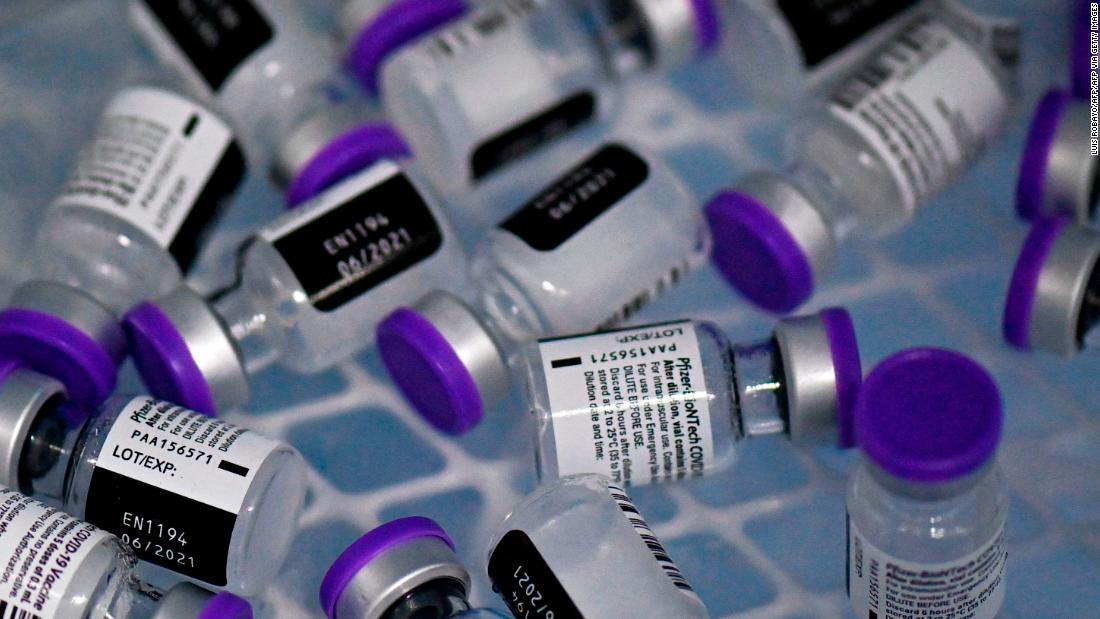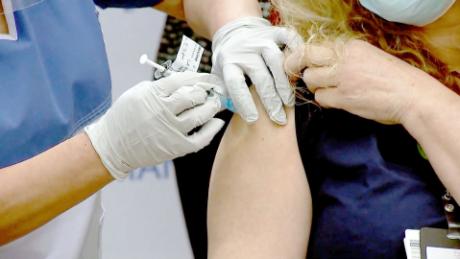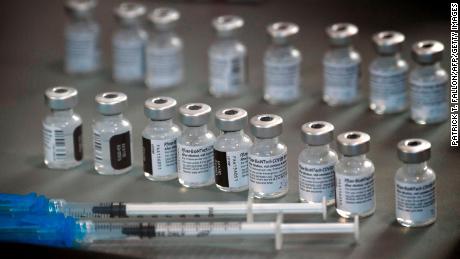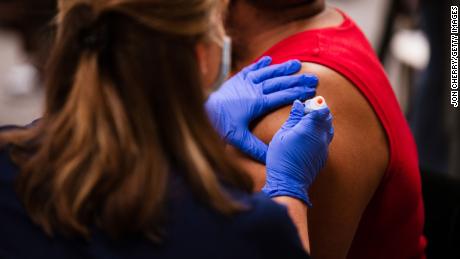Pfizer, Moderna, J&J pledge 240 million total Covid-19 vaccine doses by the end of March
Pfizer and Moderna — the two companies with Covid-19 vaccines authorized for emergency use in the United States — have pledged to make a combined total of 220 million doses available for shipment by the end of March. Meanwhile, Johnson & Johnson, which could secure emergency use authorization for its Covid-19 vaccine from the US Food and Drug Administration later this week, has pledged to make 20 million doses available in the same time frame.
“If the emergency use authorization is received this week, we hope to contribute to ending this pandemic as soon as possible,” Dr. Richard Nettles, J&J’s vice president of medical affairs, told lawmakers.
Nettles said the company is prepared to immediately ship nearly 4 million doses upon authorization of the vaccine.
Executives from each of the vaccine makers, along with executives from AstraZeneca and Novavax, testified before the House Committee on Energy and Commerce Subcommittee on Oversight and Investigations on Tuesday.
A fourth Covid-19 vaccine could become available in the US in April, when AstraZeneca could secure FDA authorization of its vaccine. Dr. Ruud Dobber, the executive vice president and president of AstraZeneca’s biopharmaceuticals business unit, said the company will immediately release 30 million doses upon authorization of the vaccine and up to 50 million doses by the end of April.
Pfizer had expected to deliver 30 to 40 million doses to the US by the end of 2020 but only hit the 40 million mark last week. Moderna had been projected to deliver 20 million doses to the US by the end of 2020 but fell short by a week. When asked on Tuesday why they didn’t deliver on time, executives for the companies said access to raw materials and manufacturing a product that had never been made before both contributed to the problem.
“We did initially experience some problems with the initial ramp up of our vaccine,” John Young, Pfizer’s chief business officer, said. “We particularly saw some rate-limiting steps for the raw materials,” Young added.
“We ultimately had never–when we were trying to make those estimates — manufactured at this scale, and so we had a lot to learn along the way,” Dr. Stephen Hoge, Moderna’s president, said. “As we look back, could we have maybe started earlier in that process and lining up all of the critical raw materials sooner, would we have been able to get there a little bit faster instead of first week of January, last week of December? It’s possible. Certainly hindsight, and that is 20-20 for us.”
The five drug companies have contracts with the US government to eventually provide 1.1 billion doses of vaccine, enough to fully vaccinate nearly 600 million people — close to twice the US population. Officials from the companies assured lawmakers they are on track to meet those commitments.
All five said they didn’t foresee any shortage of raw materials that could get in the way.
“At this point, we think we have the supplies and consumables we need,” Hoge said.
Moderna is seeking approval from the FDA to increase the number of doses in each of its Covid-19 vaccine vials from 10 to up to 15. When questioned about what the impact on the increase would be, Hoge said it “would accelerate delivery substantially” and decrease the demand for some critical, high-demand raw materials .
“Obviously, any gains — for instance, filling more doses in a vial — we will take,” Hoge said. “We need to get more doses more quickly into peoples’ arms.”
Beyond production and distribution, the executives addressed questions about protection, as new coronavirus variants spread.
“Adding a new strain to our vaccine is something we have experience with and are capable of doing very quickly,” John Trizzino, Novavax’s chief business and commercial officer, said.
Pfizer is looking at at a potential third-dose booster shot.
“We believe that there’s some emerging evidence where having higher antibody titers may well be protective even against new variant strains,” Young said. “We’re also in discussions with the FDA to potentially developing an upgraded vaccine against a new variant of concern, should it arise.”
![]()








